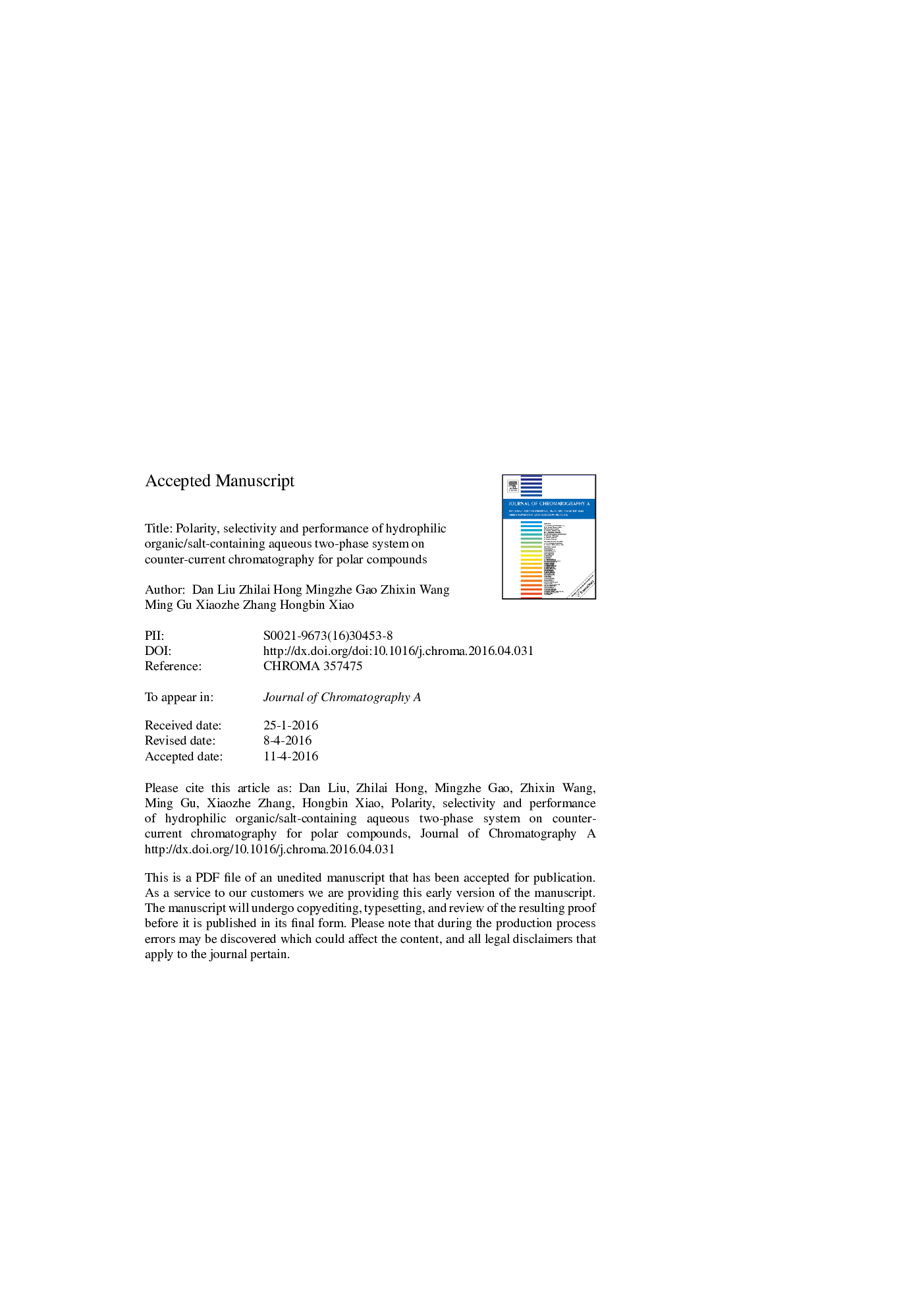| Article ID | Journal | Published Year | Pages | File Type |
|---|---|---|---|---|
| 7610084 | Journal of Chromatography A | 2016 | 31 Pages |
Abstract
The essential attributes of a solvent system for separation polar compounds on CCC are polarity, selectively and performance. Here, hydrophilic organic/salt-containing aqueous two-phase system (HO/S TPS) was evaluated as an alternative solvent system for CCC separation of polar compounds. Polarity measurements based on Rohrschneider-Snyder parameter was developed as quantitative assessing the polarity of HO/S TPS and comparing with an organic/aqueous system. All investigated 1-butanol/ethanol/saturated ammonium sulfate solution/water (BEAsWat) and 1-butanol/ethanol/saturated dipotassium hydrogen phosphate solution/water (BEDhpWat) systems with polarity values of organic phase from 4.5 to 6.8, were more polar than chloroform/methanol/water (1/1/1). The considerable water content of BEAsWat and BEDhpWat (0/1/1/1/) was 45.4 and 42.6% (w%) of hydrophilic organic phase, and 66.4 and 51.2% (w%) of salt-containing aqueous phase, respectively, closed to conventional aqueous two-phase system. Therefore, the polarity of HO/S TPS is in the middle of organic/aqueous and aqueous two-phase system. The LogKC values of twenty four polar compounds as model mixture confirmed that the polarities of HO/S TPSs were matched to that of the polar compounds and shown to be a very selective technique capable of separating positional isomers. Moreover, BEAsWat and BEDhpWat systems can be easily retained in CCC column with suitable elution mode. The hydrodynamic behavior reversion of HO/S TPS on hydrodynamic CCC was observed and was tentatively explained based on the density difference. Finally, caffeoylquinic acid isomers and dihydroxybenzoic acid isomers were successfully separated with HO/S TPS on CCC, respectively. Those results demonstrate that HO/S TPS on CCC is a performant and stable way to separate polar compounds from natural products.
Related Topics
Physical Sciences and Engineering
Chemistry
Analytical Chemistry
Authors
Dan Liu, Zhilai Hong, Mingzhe Gao, Zhixin Wang, Ming Gu, Xiaozhe Zhang, Hongbin Xiao,
